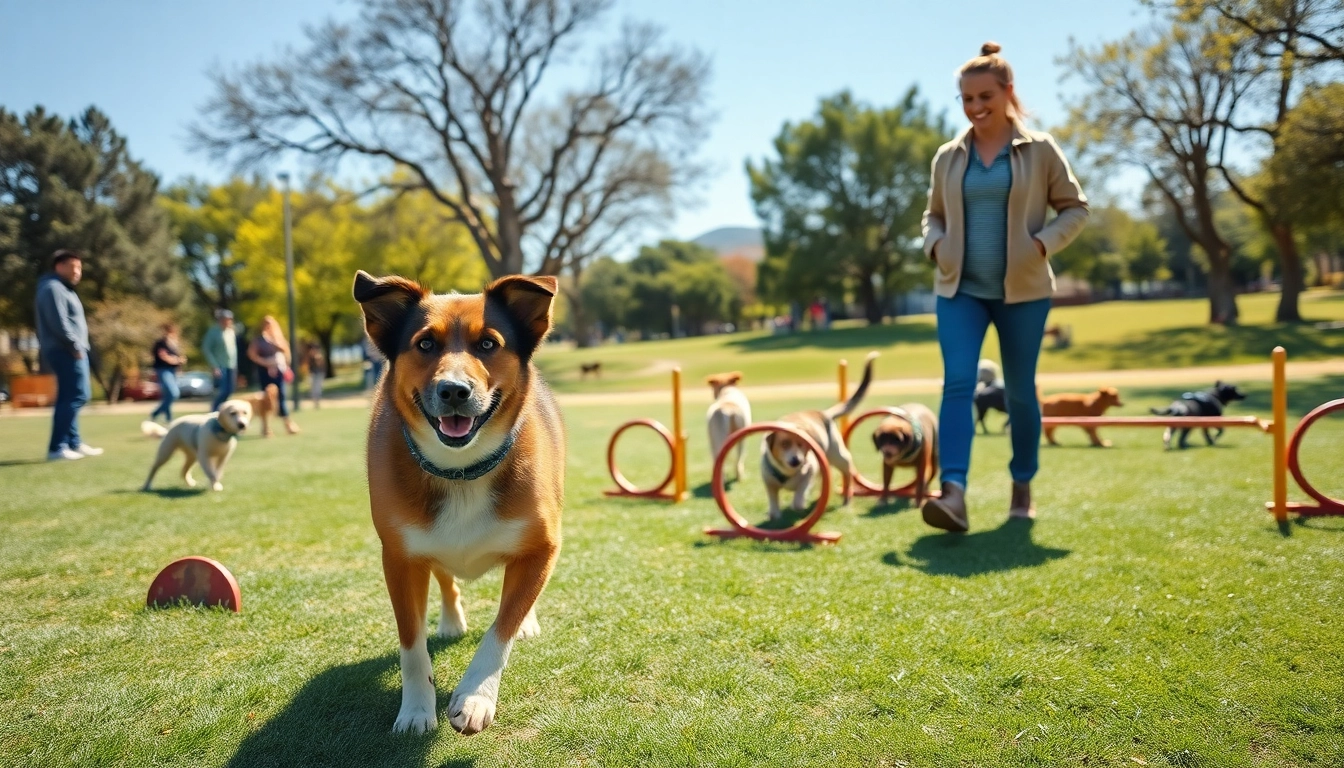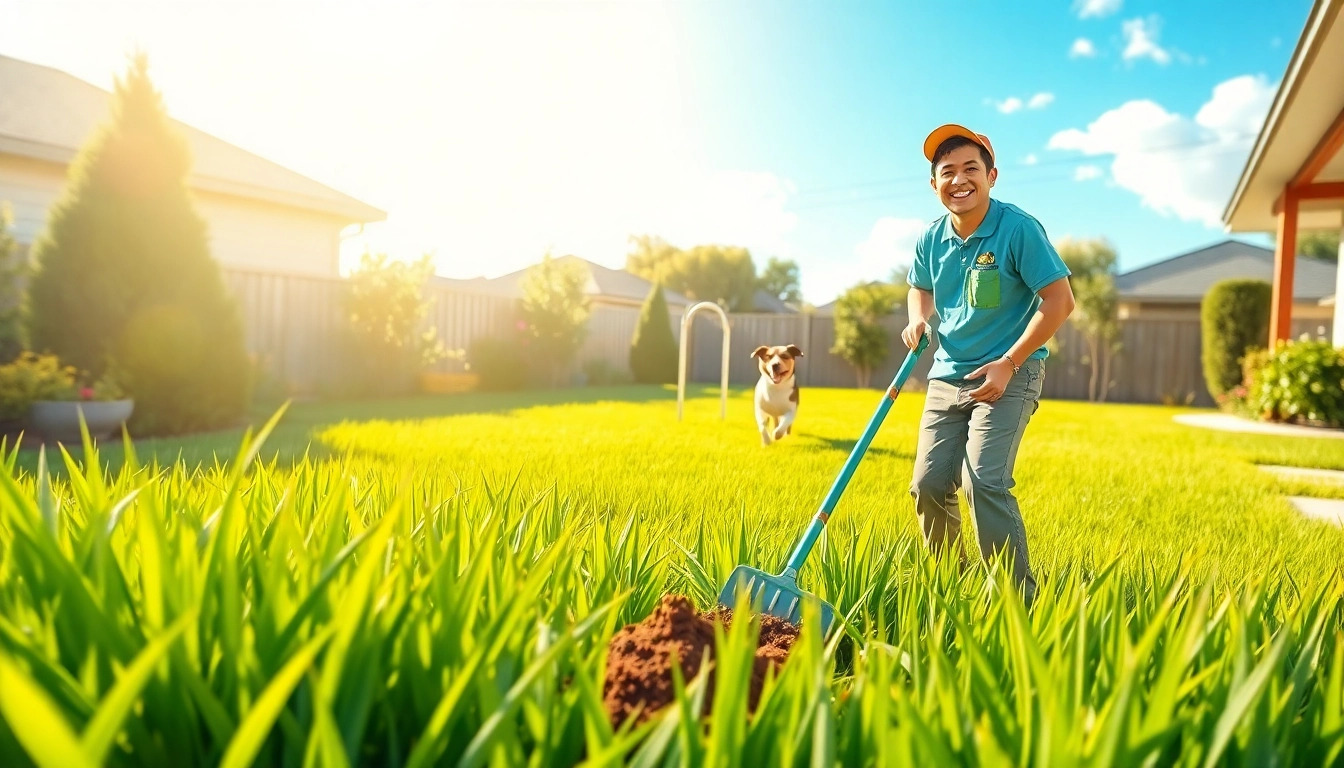Understanding Dog Training Irvine: The Basics
As a dog owner, it’s essential to understand the importance of proper training not only for your furry companion’s well-being but also for your peace of mind. Dog training in Irvine is an effective way to enhance the relationship between you and your pet. By adopting a structured training plan, you can help your dog become a well-behaved, socially adept member of your family. Investing in Dog Training Irvine can provide significant advantages for pet owners and their canine companions.
What is Dog Training?
Dog training is a methodical process aimed at teaching dogs specific behaviors, commands, and social skills. The primary goal of dog training is to ensure that dogs can respond appropriately to commands and situations, allowing for a well-mannered pet in various environments. Whether it’s teaching basic obedience or tackling more complex issues, training can help dogs understand what is expected of them.
Why Choose Dog Training in Irvine?
Irvine is a vibrant community that prides itself on being pet-friendly, making it an ideal environment for dog training. The city boasts numerous parks, pet-friendly venues, and supportive pet services. More importantly, opting for dog training in Irvine connects you with experienced trainers who understand the specific needs and temperament of dogs in this region. Additionally, local training facilities often incorporate community values and engagement into their training programs, ensuring that both dogs and owners feel supported throughout the learning process.
Common Training Methods Used
Understanding different training methods can help you choose the right approach for your dog. Some of the most common methods include:
- Positive Reinforcement: This method rewards desired behaviors, encouraging the dog to repeat them. It’s effective for obedience training and behavior modification.
- Clicker Training: A form of positive reinforcement that uses a clicker to mark the desired behavior immediately, followed by a reward.
- Leash Training: Teaching dogs to walk politely on a leash without pulling, integrating basic commands effectively.
- Socialization Classes: These classes focus on exposing puppies and adult dogs to various environments, people, and other animals to help them develop social skills.
Positive Reinforcement: A Proven Approach
Positive reinforcement has gained popularity as one of the most effective training approaches for dogs. By rewarding your dog for good behavior, you not only encourage them to repeat those actions but also create a bond built on trust.
Benefits of Positive Reinforcement
The benefits of using positive reinforcement in dog training are numerous:
- Aids in building a strong bond between the dog and owner.
- Encourages a fun and stress-free learning environment.
- Increases the likelihood of long-term behavior change.
- Addresses behavioral problems effectively without harsh methods.
How to Implement Positive Reinforcement
Effective implementation of positive reinforcement requires consistency and patience. Here are the steps to follow:
- Identify the desired behavior you want to reward.
- Choose a reward that your dog finds motivating, such as treats, toys, or praise.
- Immediately reward your dog when they exhibit the desired behavior to create a clear association.
- Gradually phase out the treats as your dog becomes proficient, using verbal praise or affection as a reward.
Examples of Effective Rewards
Rewards come in many forms, and understanding what motivates your dog is crucial. Here are examples of effective rewards:
- Treats: Small, tasty morsels that your dog loves.
- Toys: Use their favorite toy as a reward for completing a task.
- Praise: Verbal affirmations like “good job!” or affectionate petting.
Finding the Right Dog Trainer in Irvine
Choosing the right dog trainer can feel overwhelming, especially with the variety of options available. However, finding a skilled trainer is essential for effective training outcomes.
Assessing Trainer Qualifications
Before selecting a trainer, consider asking the following questions to assess their qualifications:
- What certifications do you hold?
- What training methods do you use?
- Can you provide references from previous clients?
- How do you handle behavioral problems?
Types of Training Programs Available
In Irvine, numerous training programs cater to different needs and skill levels. Here are some common types:
- Puppy Classes: Ideal for young pups, these classes focus on socialization, basic commands, and early behavioral training.
- Obedience Training: Provides essential commands and fosters good manners in dogs of all ages.
- Advanced Training: Targets specific skills, such as agility training or tricks, for more experienced dogs.
- Behavior Modification: Involves specialized training for dogs with aggression or anxiety issues.
Client Reviews and Testimonials
Reading client reviews and testimonials can provide insight into the trainer’s effectiveness. Look for feedback that highlights:
- The trainer’s communication style.
- The success of previous students in achieving desired behaviors.
- The trainer’s ability to handle challenging situations and behaviors.
Specialized Dog Training Programs
Some situations and breeds may require specialized training programs tailored to their unique needs. Understanding these options can help you make an informed decision when selecting a training program.
Puppy Training Classes: What to Expect
Puppy training classes typically last between six to eight weeks and focus on both socialization and basic obedience. Expect your puppy to learn essential commands like sit, stay, and come while interacting with other puppies in a safe environment. This socialization is crucial for developing well-adjusted adult dogs.
Behavior Modification Techniques
Behavior modification techniques may be necessary for dogs exhibiting challenging habits like aggression or anxiety. Techniques may include desensitization and counter-conditioning to help dogs cope with their triggers effectively. Trainers often customize these approaches based on the dog’s specific needs, ensuring a tailored solution.
Advanced Training for Specific Breeds
Certain dog breeds have unique behavioral traits that may require specialized training approaches. For example, working breeds may benefit from obedience and agility training, while companion breeds may excel in socialization and therapy roles. Understanding your dog’s breed characteristics can guide you in choosing the right training program.
Measuring Success in Dog Training Irvine
Measuring progress is crucial to ensure that you and your dog are on the right path. Establishing clear metrics and evaluating training outcomes will help both you and your trainer gauge success.
Setting Realistic Goals for Your Dog
To assess success, it’s essential to set realistic and achievable goals. Consider your dog’s age, breed, and prior experience when setting objectives:
- For puppies, start with basic commands and socialization.
- For adult dogs, focus on specific problem behaviors or skills.
- Discuss with your trainer to ensure your goals align with your dog’s temperament.
Tracking Progress and Adjustment Techniques
Regularly tracking your dog’s progress is vital to understanding what works and what requires adjustment. Keep a training journal documenting:
- Commands learned.
- Behavioral changes.
- Successful responses during training sessions.
If certain methods fail to yield results, don’t hesitate to adjust your training strategy or consult with your trainer for alternative techniques.
Celebrating Milestones: Training in Action
Recognizing and celebrating milestones during training fosters a positive environment for both you and your dog. Celebratory methods include:
- Offering extra playtime and treats.
- Taking your dog to a favorite park.
- Documenting progress through photos and sharing success stories with friends or on social media.
These small celebrations not only motivate your dog but also reinforce the bond you share during the training process.
In conclusion, dog training in Irvine integrates understanding dog behaviors, employing effective training methods, and finding the right professional guidance to ensure successful outcomes for both dogs and owners. The journey to a well-trained dog is rewarding, transforming not only your pet but also enhancing your experience as a dedicated dog owner. By utilizing the resources available in Irvine and committing to positive training methods, success is within reach.



